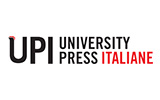Voice and technology
Editors: Francesca Placanica, Stefano Lombardi Vallauri
For its inseparable connection with the body, voice proves essential not only in music but also in other forms of creative and performative production – theatre, cinema, performative poetry, radio drama; voice is also central to other material and medial contexts such as our daily life, live performance, radio, television, web – which encompass, yet not in exclusive ways, music alongside language and other forms of communication systems.
Voice is also one of the musical instruments most exposed to any type of elaboration and technological mediation (microphone, filtering, alteration, deformation, amplification, compression, dislocation, mediation and remediation).
With regards to these conditions, contemporary classical music represents a specific operational context, where the rapport between voice and technological elaboration becomes the object of very intense and varied research.
For the issue “Voice and Technology”, the journal Nuove Musiche invites scholars and contemporary classical music performers to propose submissions on the topic. Articles will span from the analysis of particular case studies to a more general theoretical reflection.
The contributions might align, though not exclusively, with the following topics:
- history of the technological elaboration of voice in Post-World-War II avant-garde and in contemporary composition;
- analogical and digital voice in twentieth and twenty-first-century music performance;
- voice and embodiment/voice and disembodiment through technological elaboration in Post-World-War II avant-garde and in contemporary composition;
- voice and technology on stage (theatre, music theatre and post theatre);
- national and transnational trends in Post-World-War II avant-garde and in contemporary composition;
- technological elaboration of the voice and contamination with other musical styles (popular, folk, rap);
- technological elaboration of the voice in audiovisual or multimedial contexts;
- specific features pertaining technological elaboration of voice as opposed to other musical instruments in Post-World-War II avant-garde and in contemporary composition;
- technological elaboration of voice on behalf of technicians vs composers vs partnerships (e.: a composer and a technician);
- voice and Artificial Intelligence;
- inapparent or concealed elaboration of voice (vs techonological elaboration performed, and put under focus);
- resistence to technological elaboration of voice (contexts: genres and styles, geographical areas, individual authors);
- interaction between technological elaboration of voice and its linguistic aspects or in relation to its musical features;
- technology supporting the analysis of
The editorial board entrusts to Francesca Placanica (f.placanica@hud.ac.uk) and Stefano Lombardi Vallauri (stefano.vallauri@iulm.it) with coordination and editing of the issue.
The language of the articles can be English or Italian. Timeline:
- submission of abstracts (200-250 words) and short author’s bio (100 words) by 10 August 2023;
- evaluation of abstract by guest editors and scientific committee of the journal editors by 30 September 2023;
- article submissions (4000-8000 words) by 31 March 2024;
- peer review (double blind), 31 May 2024;
- final drafts required by 30 June 2024;
- final editing and publication by November
Per la sua inscindibile connessione con il corpo e come veicolo di comunicazione udibile, la voce è essenziale non solo nella musica ma anche in altre forme di produzione creativa e performativa – teatro, cinema, poesia performativa, radiodramma –; nonché in vari contesti materiali e mediali – esistenza quotidiana, performance dal vivo, radio, televisione, web – che comprendono, ma non in maniera esclusiva, la musica accanto al linguaggio e agli altri sistemi di comunicazione.
La voce è anche indubbiamente uno degli strumenti musicali sottoposto in modo più capillare a ogni tipo di elaborazione e mediazione tecnologica (microfonazione, filtraggio, alterazione, deformazione, amplificazione, compressione, dislocazione, mediatizzazione e ri-mediatione).
Rispetto a questo insieme di condizioni, la musica classica contemporanea costituisce un ambito operativo specifico, in cui il rapporto tra voce ed elaborazione tecnologica diviene oggetto di ricerche assidue estremamente variegate.
Per il numero su “Voce e Tecnologia” la rivista «Nuove Musiche» invita gli studiosi e i performer di musica classica contemporanea a proporre contributi sul tema.
Gli articoli potranno spaziare dall’analisi di casi alla riflessione teorica generale.
Senza alcuna pretesa di esaustività, la seguente lista espone alcuni campi d’indagine specifici già individuabili:
- storia dell’elaborazione tecnologica della voce nell’avanguardia storica e nella composizione contemporanea;
- voce analogica e digitale nella performance musicale del ventesimo e ventunesimo secolo;
- voce come corpo vs voce astratta dal corpo, attraverso l’elaborazione tecnologica, nell’avanguardia storica e nella composizione contemporanea;
- voce e tecnologia in scena (music theatre, teatro e post-teatro);
- tendenze locali e tendenze transnazionali nell’avanguardia storica e nella composizione contemporanea;
- elaborazione tecnologica della voce e la commistione con altri stili musicali (popular, folk, rap);
- elaborazione tecnologica della voce in contesti audiovisivi o multimediali;
- specificità dell’elaborazione tecnologica della voce rispetto a quella compiuta su altri strumenti musicali nell’avanguardia storica e nella composizione contemporanea;
- elaborazione tecnologica della voce ad opera di tecnici vs compositori vs cantanti vs sodalizi (ad es. tra un compositore e un tecnico);
- voce ed intelligenza artificiale;
- elaborazione inapparente, o dissimulata, della voce (vs elaborazione tecnologica esibita, messa al centro dell’attenzione);
- resistenza all’elaborazione tecnologica della voce, in certi contesti (generi e stili, periodi, zone, singoli autori);
- interazione tra l’elaborazione tecnologica della voce nei suoi aspetti linguistici e quella inerente ai suoi aspetti musicali;
- la tecnologia al servizio dell’analisi della
La rivista affida la cura del numero a Francesca Placanica (f.placanica@hud.ac.uk) e Stefano Lombardi Vallauri (stefano.vallauri@iulm.it).
I contributi potranno essere redatti in lingua inglese o italiana. Scadenzario:
- consegna di abstract (200-250 parole) e breve biografia scientifica (100 parole) da parte degli autori, entro 10 agosto 2023;
- valutazione degli abstract da parte dei curatori e del comitato scientifico della rivista, entro 30 settembre 2023;
- consegna degli articoli (4000-8000 parole) da parte degli autori, entro 31 marzo 2024;
- peer review (double blind), entro 31 maggio 2024;
- revisione definitiva da parte degli autori, entro 30 giugno 2024;
- redazione e stampa entro novembre




